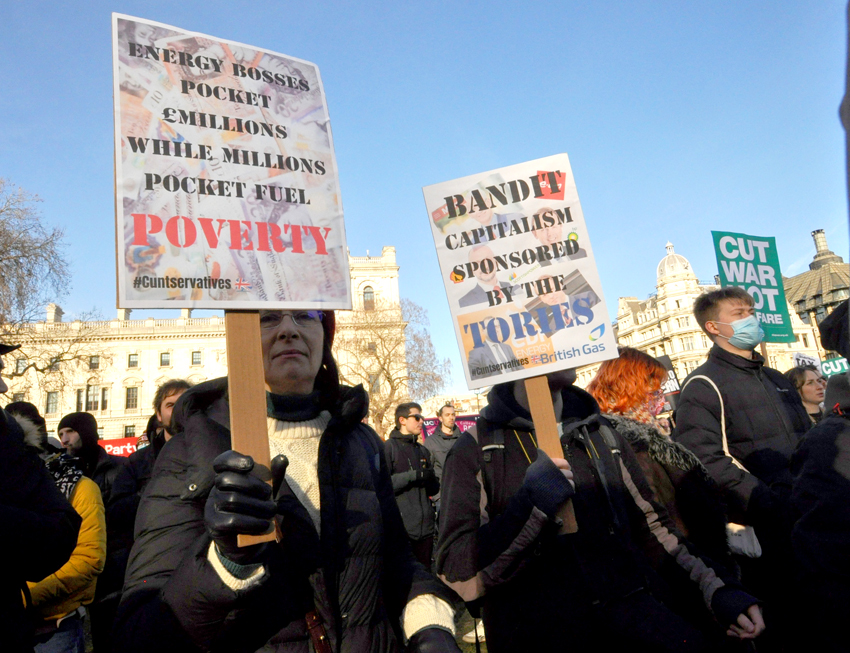
THE Bank of England Monetary Policy Committee (MPC) yesterday increased interest rates to 1.75% – the highest in 27 years.
It warned of 13% inflation and the pound has dropped after the Bank warned the UK will fall into a long recession.
Sterling was down half a cent at $1.2090, yesterday lunchtime, having been up half a cent earlier.
The Bank of England has warned the UK will fall into recession this year as it raised interest rates from 1.25% to 1.75% in a bid to curb soaring prices.
It expects the economy to shrink in the final three months of this year and keep shrinking until the end of 2023.
This would make it the longest downturn since the 2008 financial crisis.
It blamed the slump largely on rising gas prices following Russia’s invasion of Ukraine, warning a typical energy bill will hit £3,500 in October.
This would mean an average household paying almost £300 a month on energy bills.
Bank of England governor Andrew Bailey told a press conference: ‘The Russian shock is now the largest contributor to UK inflation by some way. There is an economic cost to the war … but it will not deflect us from setting monetary policy to bring inflation back to the 2% target.’
The Bank says the sharp rise in energy bills, which are set to be three times more than a year ago, will drive inflation – the rate at which prices rise – to 13%, its highest level for 42 years.
The potential for gas supply problems has led to the wholesale price soaring, which has led to energy firms passing those costs onto customers – pushing up household energy bills by unprecedented amounts.
As well as energy, households have been hit by higher petrol and diesel costs and food prices.
The Bank warned UK economic growth was already slowing, adding: ‘The latest rise in gas prices has led to another significant deterioration in the outlook for the UK and the rest of Europe.’
The interest rate rise is the sixth increase in a row as the Bank of England battles to dampen inflation.
Increasing interest rates is one way to try and control inflation as it raises borrowing costs and should encourage people to borrow and spend less. It can also encourage people to save more.
However, many households will be squeezed further following the interest rate rise, including some mortgage-holders.
Homeowners with an average standard variable rate mortgage will see their monthly payments rise by £59.17, according to Moneyfacts.co.uk. People with a typical tracker rate mortgage will have to pay an extra £51.98 a month.
The Bank said it knew the cost of living squeeze was difficult for many people. However, it said if high inflation lasted a long time that would make things worse.
The BoE statement said: ‘CPI inflation is expected to rise more than forecast in the May Report, from 9.4% in June to just over 13% in 2022 Q4, and to remain at very elevated levels throughout much of 2023, before falling to the 2% target two years ahead.
‘GDP growth in the United Kingdom is slowing. The latest rise in gas prices has led to another significant deterioration in the outlook for activity in the United Kingdom and the rest of Europe.
‘The United Kingdom is now projected to enter recession from the fourth quarter of this year. Real household post-tax income is projected to fall sharply in 2022 and 2023, while consumption growth turns negative.
‘Domestic inflationary pressures are projected to remain strong over the first half of the forecast period. Firms generally report that they expect to increase their selling prices markedly, reflecting the sharp rises in their costs.’
The statement continued: ‘The economy has continued to be subject to a succession of very large shocks, which will inevitably lead to volatility in output.’